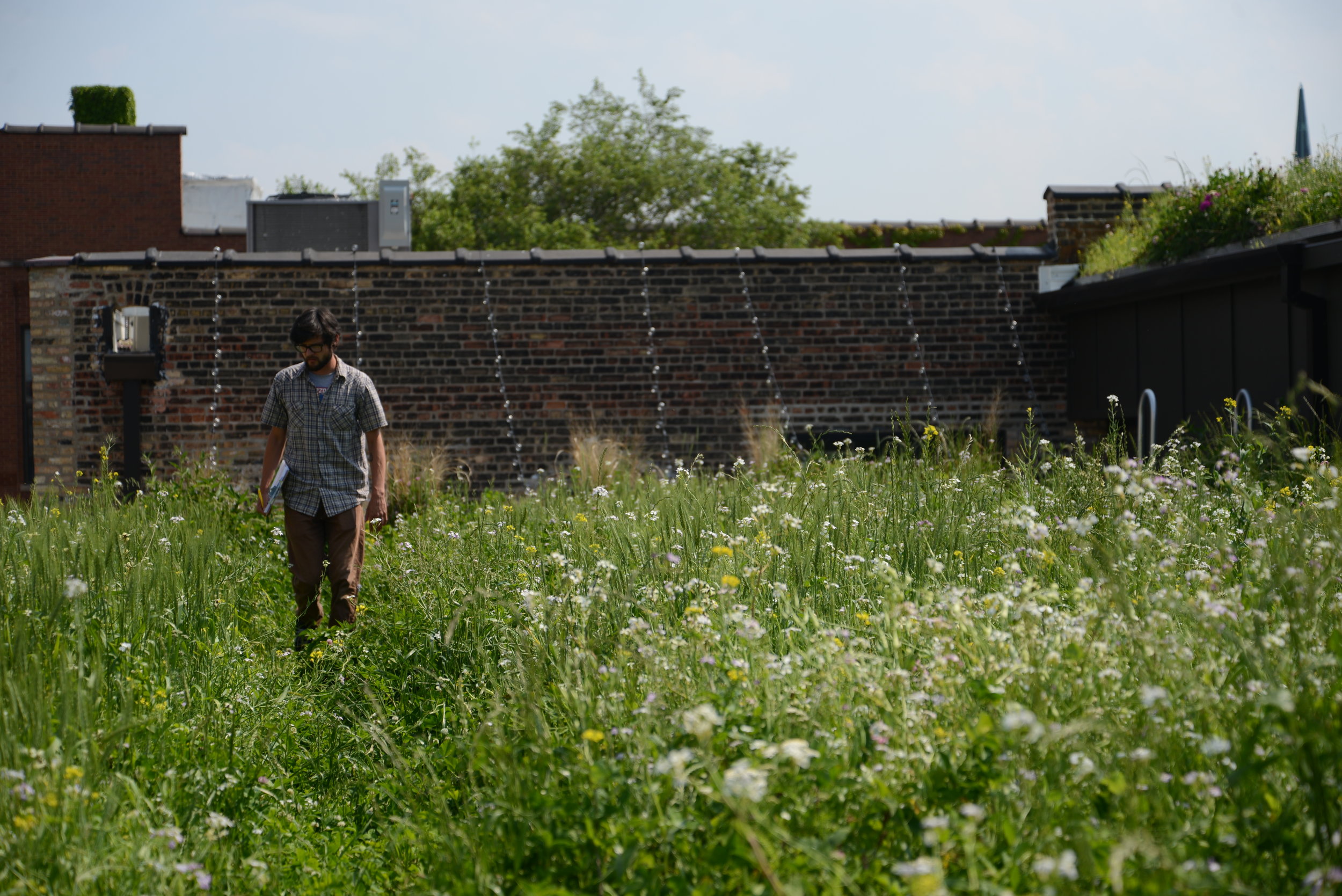Project
1516 West Carroll Ave Roof Farm
Location
Chicago, IL
Award Winner
Omni Ecosystems
Project Team
Architect: Lynsey Sorrell, Perimeter Architects
Farm Marketing & Operations: Tracy Boychuk, The Roof Crop LLC
General Contractor: Kirk Bacastow, LG Construction
Green Roof Designer, Manufacturer, & Installer: Molly Meyer, Omni Ecosystems
Owners Representative: Paul Clausen, Clausen Management Services
Roofer: Andy Moglieniki, AB Edwards
“The roof farm epitomizes Omni’s mission to create resilient landscapes that are beautiful and that create social and ecological solutions. Serving as a hands-on classroom, hyper-local food source, native pollinator pathway, and peaceful workplace respite, the rooftop farm elevates the possibilities of living infrastructure systems.”
“I’ve marveled watching this rooftop grow— not only as an ecosystem, with a more impressive array of crops establishing every year— but as a space for fellowship and community.”
“1516 West Carroll represents the best of what Perimeter Architects strive for in every project: innovation, collaboration, great design and clever solutions. The roof system is so light and flexible, engineering the roof was far less complex than with other systems on the market but the results are incomparable.”
A Pioneer In Chicago Urban Agriculture
The Commercial Rooftop Farm is a fully-functioning, commercial-scale rooftop farm located on the West Side of Chicago. The roof produces an impressive yield of 44 different crops in more than 100 varieties including green beans, potatoes, radishes, turnips and raspberries. Every week during harvest season, produce from the roof is picked, processed and packaged on-site before it’s sold to nearby restaurants and consumers, and served in locally-sourced dishes.
The site features four roofs, three of which are farmed commercially, and one 1,200-square-foot rooftop lawn used for observation and research. The food meadow is supported by an exceptionally lightweight substrate ranging in depth from 4 to 8 inches. The roof is a polyculture system, combining perennials and food crops to establish a healthy nutrient cycle and generate bountiful harvests. Perennial cover crops, many of which are edible, create a stable and established ecosystem. Seasonal seedling crops, including tomatoes, peppers, and eggplant, are added to diversify the rooftop menu.
The Carroll project is laying the groundwork and providing crucial research for these future rooftop farming projects, making it a pioneer in urban agriculture in Chicago. The building below the commercial rooftop farm houses three education-focused non profits. Two of these are after-school programs which incorporate the farm into much of their programming, teaching lessons in ecology, biology and food production and using the green roof as their classroom. Urban youth with little to no knowledge of agriculture are provided invaluable exposure to a fully-functioning farm. Select students who wish to continue their education are offered summer employment with the green-roof company. The third organization is a coalition of Chicago chefs who create food and nutrition programming for local schools. Rooftop produce is occasionally used in their classroom demonstrations and lessons, and the farm collaborates with this group
Fruits, veggies and florals harvested from the farm are purchased by nearby food cooperatives, consumers and restaurants which use them in locally-sourced dishes. The farm grows more than 100 varieties of crops including peppers, raspberries, melons, cucumbers, kales, apples and more. Harvests are conducted weekly, making the roof a viable and reliable source of hyperlocal food. Judges praised the project for its integration of urban living and agriculture as well as its array and diversity of food production.



